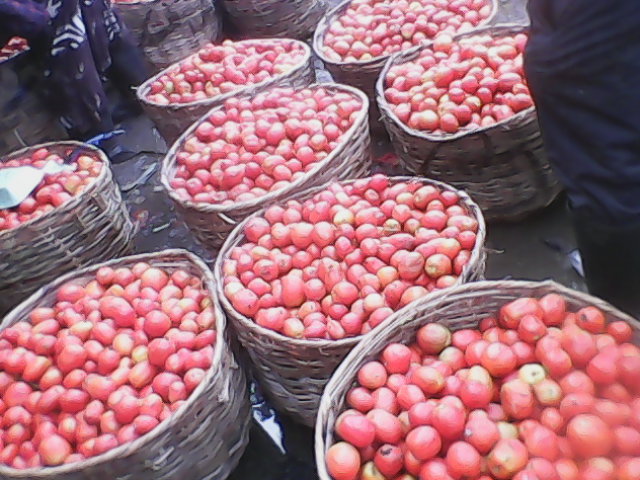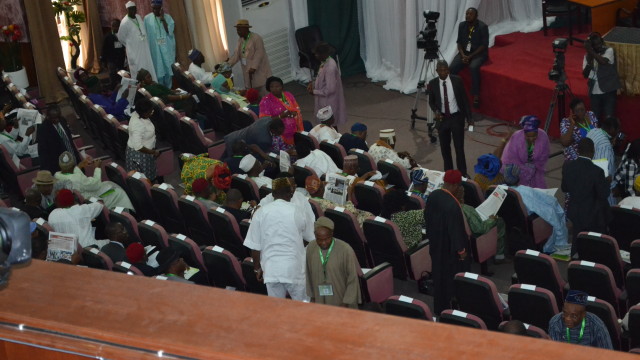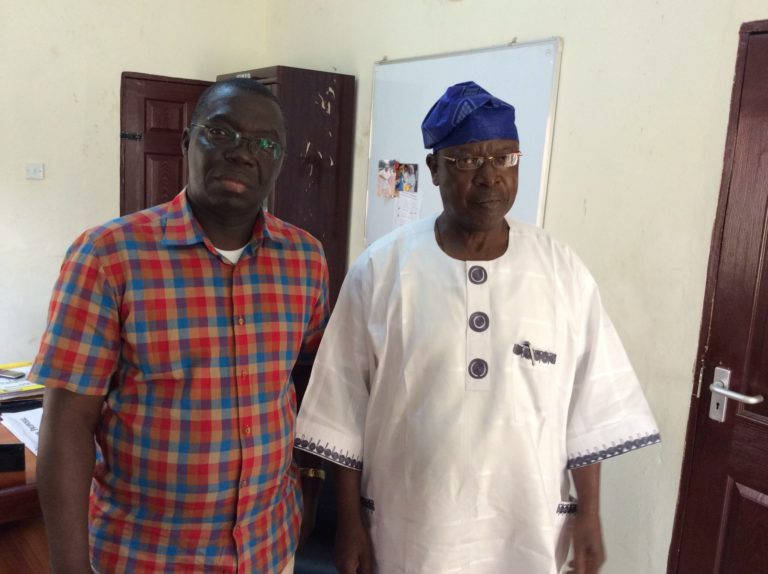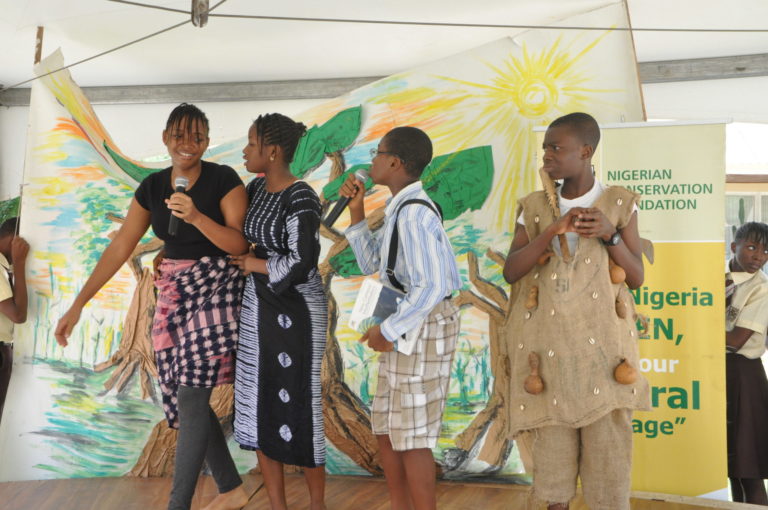B
Nigeria may host UN-REDD Policy Board meeting
There are indications that Nigeria may host the next UN-REDD Policy Board meeting, which will be the 13th in the series. The development is however not yet confirmed as the 20-member UN-REDD Programme Policy Board that met during the week in Lima, Peru are also considering Tanzania to organise the gathering.
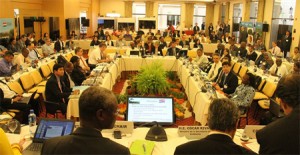
The 13th UN-REDD Policy Board meeting is scheduled to hold November 2014.
The UN-REDD Programme Policy Board is made up of representatives from partner countries, donors to the Multi-Partner Trust Fund, civil society, Indigenous Peoples and the three Participating UN Organisations (FAO, UNDP and UNEP). The Policy Board’s role is to approve financial allocations and give strategic direction to ensure the overall success of the Programme.
A forester, Salisu Dahiru, who is of the Forestry Department in the Federal Ministry of Environment, heads Nigeria’s UN-REDD Programme, which a couple of years ago accessed about $4 million from the parent body to execute the country’s REDD Readiness Programme.
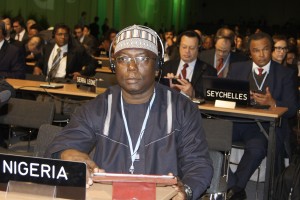
Dahiru disclosed that, if Nigeria eventually gets the nod, the meeting would probably hold at the Obudu Cattle Ranch (or Obudu Mountain Resort) in Cross River State. With a semi-temperate climate, the Ranch has in recent times seen an influx of both local and international tourists because the development of tourists facilities there by the host government has turned it into one of the most popular tourist centres in the country.
At the Lima meeting that held 7-9 July 2014, the UN-REDD Programme approved $35,481,763 in REDD+ readiness funds. The policy board also approved decisions that support the design of a 2016-2020 Programme strategy that will align with evolving partner country needs. The meeting was attended by more than 100 participants representing 25 countries, indigenous peoples and civil society organisations, and donor countries – and was marked by a collaborative, forward-looking atmosphere.
The approved REDD+ readiness funds included the allocation of funds for the National Programmes of Argentina, Cote d’Ivoire and Mongolia – respectively $3,842,370, $3,210,000 and $3,996,450. Participants highlighted the unique REDD+ learning opportunities of each National Programme. Argentina’s programme will address the large numbers of private landowners in the agriculture sector and soy production as one of the main drivers of deforestation. Cote d’Ivoire’s innovation programme will take into account the competition for forest lands with the cocoa, timber and rubber industries. Mongolia represents the first boreal forest National Programme to be funded by the UN-REDD Programme.
Policy board members also approved $24.4 million for the Programme’s “Support to National REDD+ Action: Global Programme Framework 2011-2015” (SNA) modality of support to partner countries for 2015. This includes direct support to countries in the form of “targeted support” and “backstopping”, which are designed to support and strengthen countries’ efforts to design REDD+ strategies, develop technical capacities and exchange knowledge.
In addition, members approved a roadmap to develop the 2016-2020 UN-REDD Programme strategy by May 2015, which includes a strong participatory process. Participants, including donors, cited the value of the UN-REDD Programme in building the foundation of REDD+ readiness and the importance of continuing the Programme through 2020 with a strategy that is designed to meet the evolving needs of partner countries as they progress towards the results-based phase of REDD+.
Other highlights of the meeting included:
- Uganda’s overview of its REDD+ efforts contributing to its goal to achieve 24% forest cover (from a current 15%) through reforestation, conservation and sustainable agroforestry.
- Ecuador’s presentation of a new ministerial level decree on free, prior and informed consent, and the lessons learned from the process.
- A progress update on the REDD+ Academy, with the first regional sessions announced to take place in Indonesia, Nigeria and Argentina.
- Demonstration of a new tool for tracking progress of National Programmes – the REDD+ Radar – that can be used by country partners, donors and others.
The Policy Board meeting was preceded by an Information Sharing Day on 7 July that was attended by H.E. Pak Heru Prasetyo, Head of the Indonesia National REDD+ Agency, and H. E. Manuel Pulgar-Vidal Peru Environment Minister, who both highlighted the importance of REDD+ to climate change mitigation and the importance of the support delivered through the UN-REDD Programme to advance national REDD+ efforts. The ministers also emphasized the role of forests at the upcoming climate summit and UNFCCC COP20 in Lima.
During the Information Sharing Day, countries shared experiences and progress on key areas of work. Panama shared its new land-use mapping technology and a documentary on developing its national forest inventory. Zambia, Sri Lanka and Peru shared experiences and perspectives on their National Strategies. An update was also shared on preparations for the Secretary-General’s Climate Summit to take place in September 2014
A tomato farmer’s account of unpredictable weather
Mile-12 market is known as the food headquarters in Lagos; where food is cheap, plenty, yet at best quality. Trailer loads of food, from various regions of the country, course their way into the market’s narrow entrance, thus constantly creating the traffic gridlock the axis is known for. After navigating through the mire and wastes from fruits and vegetable which have now formed a new layer of the market’s floor, we met Tambari Tarai, a middle aged tomato farmer.
Mallam Tarai, who brings his tomatoes in a trailer load from Zaria to Lagos, says that tomatoes are very expensive at this time of the year. Asking him the reason for this, he says the rainfall this year has been erratic.
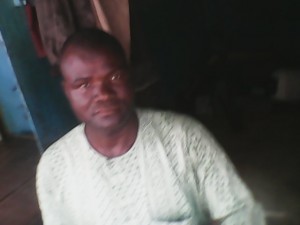
“Since this year, the rain falling, falling, falling,” he says in colloquial English.
“When rain fall like this, it spoils tomatoes and, because of that, a lot of tomatoes are wasted. Tomatoes does not like too much water.”
According to him, the farmers are not expecting rain so soon, and so have not prepared for the downpour.
Agricultural experts have observed that in as much as tomatoes need a lot of water to grow, too much of it has negative effects on the product.
This, according to them, results in huge postharvest losses, so the few quantity that can be transported is highly priced.
He transports his tomatoes in lorry loads through a day’s journey to Lagos. Explaining his routine, he says a trailer with 10 tyres carries 350 baskets of tomatoes, while that with 12 tyres carries 370 baskets of tomatoes.
“I pay N250,000 to carry 350 baskets, and sometimes N270,000-N300,000 (around USD 1500-1600) to carry 370 baskets,” he says in his Hausa-accentuated English.
Mallam Tarai is not the only one in this situation. Abubarkar, a 29-year-old tomatoe seller, shares his experience. “I bring my tomato from Katsina. This year too much rain. that is why tomato is costly,” he laments.
On arrival at Mile 12, the price of a basket of tomatoes goes for between N8,000 and N13,000, depending on the quality and freshness of the tomatoes. Baskets with lots of rotten or overly soft tomatoes deteriorate faster and so cost less. The price reflects on all markets in Lagos as retailers come from Oshodi, Agegfe, Ikorodu, Mile 2, Ajegunle and other markets to buy from Mile 12.
Defying predictions?
In March 2014, the Nigeria Metrological Agency (NIMET) released the yearly Seasonal Rainfall Pattern (SRP), which usually informs on the supposedly onset and end of rainfall, amount of rainfall and the latitude and longitude of rainfall in the six geopolitical regions of the country.
Tarai’s farm is in Zaria, Kaduna, North West Nigeria. Going by NIMET predictions, rain is to start around February 20 in the southernmost part of the country to around June 21 in the northernmost parts.
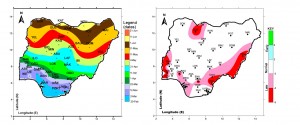
The prediction, which indicates that rain is to start in Zaria on the 17th of May, is a departure from Mallam Tarai’s experience. Mr. G.M. Eya, NIMET’s contact person for Katsina, confirms that rain started in January in the state. Speaking exclusively with him, he says though climate change contributes to the reason for the deviation, but there are certain unusual rainfall that happens occasionally. He was quick to bare his mind that such rain is not voluminous enough to destroy tomatoes since most of the farmers in this region use irrigation farming.
It should also be noted that NIMET’s forecast is based on the strong tele-connection between El Nino/Southern Oscillations (ENSO), Sea Surface Temperature (SST) anomalies and rain-bearing weather systems over Nigeria. Although the Agency has got some predictions right in the past, what is being experienced in the actual farming is a departure from this prediction.
Climate scientists all over the world have identified that one of the sectors of human existence that will be affected by changing weather patterns is agriculture and, consequently, food security. Experts have also linked food insecurity to health problems such as malnutrition and mortalities.
Impact on food prices
Tomatoes, which is often debated whether it is fruit or vegetable, is a delicacy that enriches the food appearances, tastes and also contain nourishing micronutrients such as potassium and vitamins. The micronutrients of public health importance include: Vitamin A, Iron, Folic Acid Iodine, and Zinc, which are contained in most of these foods.
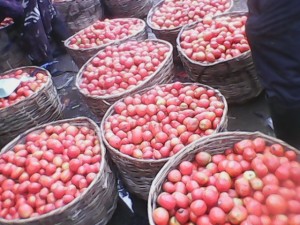
Micronutrients are vitamins and minerals most of which are not made in the body, or only in insufficient amounts, which are required in small quantities to ensure normal metabolism, growth and physical well‐being. Tomatoes are medically proven to reduce cancers especially prostate cancer. Its rich lycopene content makes it for good anti-ageing. They also contain phytochemicals which have antioxidants characteristics. Antioxidants neutralise free radicals which damage body cells. For instance, pepper are the richest source of vitamins A and C, contain lycopene known to reduce cancer, beta carotene which helps protect against certain cancers, vitamin B6 which is good for improving brain function.
Alhaja Yinusa, who sells baskets of pepper and tomatoes around the market, says once tomato price goes up, it affects the prices of other food such as red pepper, green pepper an onions. At most markets, during this report, tomato is almost unaffordable. A very meagre pieces of pale and sickly looking tomatoes are sold for N50 as against red, juicy balls of eight or 10. Lots of women during this period use alternatives such as tomatoes pastes and powdered tomatoes to give the tomato feel. But how much can the nutritional value be preserved, unlike fresh tomatoes? This has also affected the price and quantity of food at eateries and food hangouts. The high prices also affects prices of food per plate at restaurants, eateries and other hangouts.
Impact on health
Nigeria is one of the 36 countries in the world that account for 90 per cent of the world burden of malnutrition. Demographers deduce in the 2013 National Demographic Health Survey (NDHS), that wasting, stunting and underweight in children are at the highest in the North East (Taraba, Borno, Bauchi, Adamawa, Gombe, Yobe) and North Western (Kaduna, Kebbi, Zamfara, Sokoto, Kano, Jigawa, Katsina) parts of the country. While it is the least in South East, South South and South West.
Dr. Chris. Isokpunwu, Head of Nutrition, Federal Ministry of Health, says this indices is directly linked to poverty. He demonstrated that the regions where there is high poverty head count, there is also a high level of stunting. It can be observed that regions where most of these foods are brought in from such as Kaduna, Jos, Katsina, have their own people suffering the most from malnutrition.
According to a recent World Bank Report, though oil rich, Nigeria is listed as one of the world’s five poorest countries; implying that availability of money determines healthy nutrition such as a balanced diet and thus good health.
According to him, malnutrition and nutrition related diseases continue to be problems of public health importance in Nigeria as it slows economic growth and perpetuates poverty through direct losses in productivity from poor physical status; indirect losses from poor cognitive function and deficits in schooling; and losses owing to increased health care costs.
Furthermore, the prevalence of the iron deficiency anaemia is 48 per cent among pregnant women, 34 per cent among under five children, and 24 per cent among mothers. Iron deficiency is known to contribute to low birth weight in children, thus increasing new-born and child mortality.
Iodine deficiency causes Iodine deficiency Disorders (IDD), 13 per cent among under-five children, 10.5 per cent pregnant women, 13 per cent among nursing mothers.”
Any interventions?
Although the country recorded some progress when, in 2013, the Food and Agriculture Organisation (FAO) rated Nigeria as one of the countries to have reduced the number of hungry people by half thus meeting the Millennium Development Goal (MDG) 1, nevertheless, the report on State of the Food Insecurity in the World 2012 states that there are 852 million hungry people, majority of who live in developing country especially Africa.
NIMET’s Mr Eya says farmers are sensitised each year on what to expect so as to prevent losses in crop yield. “We give the information to the farmers through government agencies like the Agriculture Ministry. I remember I spoke at Radio Katsina and other media organisations, just to sensitise our farmers.”
Mallam Tarai, who is semi-literate, says he knows nothing about the NIMET prediction, thus he is perplexed at the change in rainfall pattern.
By Abiose Adelaja Adams
National Conference decides on Land Use Act amendment
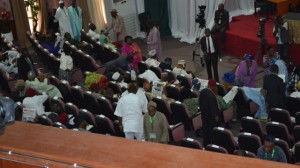
Resolution of two critical issues that have caused a deep divide at the National Conference formed a part of the plenary session of the Conference on Wednesday, a day partially devoted to debate on the modalities for the implementation of the Conference report.
One of the issues which were handled by a special committee comprising leaders of geo-political zones and other selected delegates was the Land Use Act and the contentious argument as to whether or not it should be removed from the constitution. The other critical issue which had split the Conference into two regional blocs was the Derivation Principle. It bordered on whether the existing 13% allowed by the Constitution should be retained, reduced or increased.
On the Land Use Act, the argument for its retention in the 1999 Constitution was based on the belief that allowing the Act to go would give chance for oligarchs to take over lands which the Land Use Act has democratised with the government as the intervening body.
Supporters of this school of thought also said that since land is not a renewable commodity, it must not be left at the mercy of land speculators; and that removing it from the constitution would be discriminatory and unjust to the poor. It was their position that removing the Act from the constitution would create dichotomy; describing the suggestion as a grand design for the rich to buy land at cheap prices, a situation they said would lead to crisis that cannot be managed.
On the other side, the argument was that the Land Use Act should remain a law but must be removed from the constitution to make it easy for amendment. They argued that, at present, amending the Act through the constitution has become too cumbersome and that, in other countries, land tenure is universal while governments nearest to the communities serve land tenure better. They complained that governments have taken peoples land and have refused to pay compensation; and that since the promulgation of the Act, access to land has remained a major problem, thus hindering economic development.
It was also stated that the power of compulsory acquisition vested on state governors has been, in most cases, used arbitrarily without the payment of adequate compensation to land owners. The committee noted that both sides of the argument were convincing; unfortunately none of them agreed with the other and no side agreed to back down.
Thus, in its decision which was accepted by the Conference, it was stated that the Act would be retained in the constitution while certain amendments would be carried out in certain sections of the Act. For instance, one of such amendment would enable land owners to determine the price and value of their land. It allows government to negotiate with land owners and not compensate them.
It was also resolved that the customary right of occupancy in Section 21 of the Act be amended to read “Customary Right of Occupancy should have the same status as statutory Right of Occupancy, and should also be extended to urban land”. It was also agreed that Section 7 of the Act which deals with the restriction on rights of persons under the age of 21 to be granted statutory right of occupancy should be amended to read “restriction of persons under the age of 18”. This, it was argued, is because the Child Rights Act stipulates that a person attains adulthood at the age of 18. With the decision on the issue of the Land Use Act, the report of the Committee on Land Tenure Matters and National Boundary was formally adopted, as amended.
GSK, Save the Children’s $1 million award seeks to reduce child deaths
GSK and Save the Children have announced the launch of their second annual $1 million Healthcare Innovation Award at the Partnership for Maternal, Newborn and Child Health meeting in South Africa. The award was established to identify and reward innovations in healthcare that have proven successful in reducing child deaths in developing countries.
From the 27 June to 25 August, organisations from across the developing world can nominate examples of innovative healthcare approaches they have discovered or implemented. These approaches must have resulted in tangible improvements to under-five child survival rates, be sustainable and have the potential to be scaled-up and replicated. This year, special interest and attention will be given to work that aims to increase the quality of, or access to, healthcare for newborns.
Last year the top prize was awarded to Friends of Sick Children (FOSC), Malawi, for their ‘bubble’ Continuous Positive Airway Pressure (CPAP) kit, which demonstrates the impact of simple, low-cost innovations. The ‘bubble’ helps babies that are in respiratory distress, often caused by acute infections like pneumonia, by keeping their lungs inflated so they can breathe more easily. A similar version is already commonly used in developed countries where they cost at least $6,000 each. This innovative low-cost ‘bubble’ CPAP adaptation can be produced for approximately $400.
FOSC was granted an award of $400,000, which along with backing from the Ministry of Health in Malawi, will enable them and their partners to share this life-saving technology with teaching hospitals in Tanzania, Zambia and South Africa.

Co-chaired by Sir Andrew Witty, CEO of GSK, and Justin Forsyth, CEO of Save the Children, a judging panel, made up of experts from the fields of public health, science and academia, will award part of the overall funds to the best healthcare innovation to support further progress. The remaining funds will be made available for runners-up awards as directed by the judging panel.
The award also aims to provide a platform for winning organisations to showcase their innovations and share information with others interested in improving healthcare for children in some of the world’s poorest countries.
Sir Andrew said: “We are committed to working in partnership with other organisations and our work with Save the Children is a great example of how we can use our scientific expertise and reach to help improve health outcomes for people around the world. As a direct result of this award last year’s winners have already had a tremendous impact and we want to continue to support them as they develop innovations that can be scaled-up and replicated to help reduce child deaths in the world’s poorest countries.”
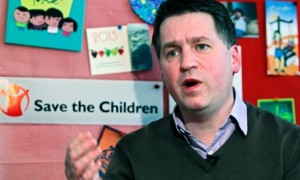
Forsyth said: “We know that in order to bring life-saving healthcare to the hardest to reach children, ambitious new ideas and approaches are needed. Last year’s Healthcare Innovation Award found new innovations that are saving children’s lives and can be replicated to help reach even more children. This year, we look forward to discovering more pioneering solutions that will make a bigger impact for the world’s most vulnerable children.”
While good progress has been made in recent years, every year 6.2 million children worldwide still die before their fifth birthday. Often these children are in the most remote and marginalised communities. The GSK and Save the Children Healthcare Innovation Award aims to discover and encourage replication of the best and most innovative examples of healthcare to have the biggest impact for vulnerable children.
The Healthcare Innovation Award was announced following the launch of GSK and Save the Children’s ambitious new partnership in May 2013, which aims to save the lives of 1 million children in some of the world’s most vulnerable communities. One of the most unique aspects of the partnership is the focus on working together to maximise innovations to tackle under-five child mortality. For example, Save the Children is involved in helping GSK to research and develop child-friendly medicines, with a seat on a new paediatric R&D board to accelerate progress on innovative life-saving interventions for under-fives, and to identify ways to ensure the widest possible access in the developing world.
Recognising that innovation can take many shapes and forms, the criteria for the Healthcare Innovation Award are broad and can include approaches that focus on any aspect of healthcare, including science, nutrition, research, education or partnership working.
Nigeria explores e-infrastructure for climate data, information
Ways to adapt to the negative impact of climate change took a new dimension this week as stakeholders initiated moves to tackle an apparent limitation of data in the sector.
Just like other African nations, Nigeria lacks elaborate, comprehensive and real time climate figures that will enable her make appropriate decisions, predictions and preparations towards the looming negative impacts of climate change.
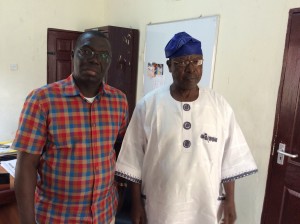
But a collaboration involving the United Nations Development Programme (UNDP) and the Federal Ministry of Environment (FME) has stepped up moves to make a change, courtesy of a capacity building programme aimed at the establishment and use of e-infrastructure for climate change data and information management in the country.
Holding at West Africa Science Service Centre and Adaptive Land-use (WASCAL) Centre in the Federal University of Technology (FUT) in Akure, Ondo State, the event commenced on Monday and will be rounded up on Friday.
Besides hosting a state-of-the-art High Performance Computing (HPC), the Centre also operates the Graduate Research Programme on the West African Climate System (GRP-WACS). Likewise, the HPC is installed in the Department of Climate Change, a UNFCCC (United Nations Framework Convention on Climate Change) National Focal Point.
In collaboration with UNDP, the Department a couple of years ago initiated a process of establishing Climate Change Data Management System under the Japanese government-sponsored African Adaptation Programme (AAP).
According to Environment Minister, Laurentia L. Mallam, the training is aimed at not only setting up the climate data server but also to enhance capacity of the Designated Government focal point as well as other climate change experts in climate change information management for decision-making process towards policy formulation and implementation.
She added that the training workshop therefore is expected to ensure that the entire High Performance Computing (HPC) infrastructure are installed and the staff of the Department of Climate Change together with those at the FUT Akure nodal centre trained on data server administration and use of the infrastructure for climate change and related studies.
Mallam, represented by Dr Samuel Adejuwon, Director of the Climate Change Department in the ministry, emphasised that the training is in appreciation of the fact that evidences related to climate change deal mainly with spatial and non-spatial data which are more easily captured using geo-informatics and which has made it a lot easier to utilise such data for policy formulation.
“Geo-informatics for climate change studies is the art of using infrastructures including mainly satellite, servers, computers and other hardware and software applications and technology for investigating, monitoring, documenting, and understanding the impacts of climate change especially for a more informed decision taking,” Adejuwon stated.
He added: “The increasing ability to understand complex, system-oriented phenomena such as climate change is strictly correlated with the need for increasing data and computing resources. The e-infrastructures represent an innovative and unique approach to address this problem. They demonstrated to be an efficient way to share and access resources of different types which can effectively enhance the potential of scientific research and productivity.”
He lauded the UNDP for making the workshop a reality, even as he poured encomiums on the FUTA Vice Chancellor, Prof Adebiyi Daramola, and the Director of WASCAL Centre, Prof Jerome Omotosho, for hosting the German-funded international centre and making it a “Centre of Excellence.”
Also congratulating Profs Daramola and Omotosho, a representative of the UNDP at the event described WASCAL as a large-scale research-focused programme designed to help tackle climate challenge and thereby enhance the resilience of human and environmental systems to climate change and increased variability.
“It does so by strengthening the research infrastructure and capacity in West Africa related to climate change and by pooling the expertise of 10 West African countries and Germany,” he stated, adding:
“Climate change is an issue that concerns everyone on the surface of the planet – we share one atmosphere, and we truly hold a shared responsibility for reducing the greenhouse gas emissions that contribute to climate change, and supporting efforts to help vulnerable communities adapt to, and build resilience to, the effects of climate change.
“There is a need for us at this time to take steps in tackling this problem before it gets out of hand. We need to be able to take decisions, and to make plans if we are to leave something for the next generation.”
Omotosho noted that the research and training at the centre could be harnessed for national development in agriculture, climate change, rainfall disparities and in many other areas. He stated that the programme also impacts on villages in the hinterland.
However, the director stressed that the support of the German donors of the centre is time-bound and added that it is critical for the Federal Government and other interested stakeholders to show interest in the funding of the activities of the programme in the post-German era. He said the donors have requested the governments of the 10 benefitting West African countries to start making a progressive contribution of 10 per cent so that, in the event of withdrawal, the centre can be sustained.
But he lamented that government had not delivered on that contribution. The director stressed that, as an essentially manpower trainer, the importance of the centre to the development of the country could not be over-emphasised. He appealed to the government not to allow the centre die in the event that the funders withdraw eventually.
He commended the UNDP for the donation of the e-infrastructure which he said would significantly boost research and scholarship at the centre.
Climate Change Consultant to the UNDP, Dr. Joseph Intsiful, who was the lead trainer, underlined the importance of data towards mitigating climate change impact on developing countries, saying it is necessary to engage every stakeholder in order to achieve result in containing the effects of climate change.
Intsiful stressed that since the phenomenon is a global problem, to resolve its effects, there is the need to seek global perspectives, hence the training. He noted that he was impressed with the participants’ appreciation of the e-infrastructure, which they would use to stave off likely disaster areas.
He admitted that finance remains a critical issue in sustainability. Nonetheless, he advised that the idea of a centre like WASCAL should be extended to other universities in the country. He added that the ministry and UNDP should synergise to continue the training in other institutions, especially as it relates to the e-infrastructure.
Some of the trainees said they have learnt new skills which would help them in their work. Dean of School of Sciences, FUTA, Prof. Ibiyinka Fuwape, said the e-infrastructure would be beneficial to both students and researchers alike. She added that the software given to them could be deployed to various research areas for the benefit of Nigerians.
Also speaking, the duo of Bello Sani Yankuzo and Chukwuemeka Okebugwu, both staff of the environment ministry, hailed the exercise which they said would greatly advance their work. Yankuzo added that the new skills gained would help them in many areas of their work.
Mobil fingered in fresh Nigeria oil spill

Mobil Producing Nigeria (MPN), the Nigerian unit of ExxonMobil, has recorded yet another oil spill in its operation in Ibeno Local Government Area of Akwa Ibom State. The spill occurred Sunday 29th June, 2014 which the community estimates it at over 15,000 barrels discharged to the Atlantic coastline.
The spill, according to community source, was first noticed by fishermen who went for fishing that night. Peace Point Action, a member organisation of National Coalition on Gas Flaring and Oil spills in the Niger Delta (NACGOND), reports from the scene that the spill is traced to Exxon Mobil equipment failure behind the QIT Terminal, which impacted negatively on the coastline, creating untold hardship to the community members who depend solely on the sea for their sustenance.
Koko-Mime, a fish seller who also serves as Women Leader, Inua Eyen Ikot, said, “The spill has broken down our business as customers do not even care to come for fish this morning as they used to buy every day since they know that the spill killed all the fishes in the sea, the fishermen will not bring fish for us to dry and sell. Feeding our children is now a problem.”
“Fishermen reported to us this morning at about 4 am that they discovered large quantity of oil floating all over the sea as they were fishing and their nets pinched by the tick volume of oil,” said Inyang Atabop,Vice Chairman, Ibeno President Forum, who also serve as youth President, Esuk Ikim Ekeme Community.
According to him, there are pending oil spill compensations yet to be paid to the community by Exxon Mobil, lamenting that now another one has occurred. “Who will fight for us as Mobil now came up with new English called ‘Palliative’ which the community youths do not know the meaning?” he demanded.
He called on relevant bodies like National Oil Spill Detection and Response Agency (NOSDRA), Federal Ministry of Environment and the State Ministry of Environment to come to their aid by compelling Exxon Mobil to pay compensation to the community members as compensation usually follows whenever oil spills occurs. He said that, as youth leaders, it’s their responsibility to ensure orderliness within the community especially at this critical period but Mobil should not use this as an opportunity to work against them.
Another youth in the community who simply gave her name as Glory said, “God will not allow Mobil to force our youths into militancy before they listen to us.” She decried the frequent oil spills occurrences in the community.
One John David, who attended Joint Investigation Visit (JIV) training organised by NACGOND, said, “In all the reported oil spills in Ibeno and other oil producing LGAs in the state, Mobil never carried out a JIV, all what they do is to employ community youths and pay them N5,000 each to clean up the mess.” He traced the source of the spill to a damaged Exxon Mobil tank just behind the firm’s office at QIT. According to him, some law enforcement officers visited the community this morning (29th June, 2014) and “pleaded to us to remain calm.”
John also said the youths earlier contacted Paul Orinze, Exxon Mobil Manager, via mobile phone who acknowledged the situation and also promised that Mobil would forward acceptance letter to the Local Government Chairman soonest.
Godwin Ikot, Youth Leader of Okom Ita Community, told Peace Point Action reporter: “Our fishermen are left with no other alternative as they cannot fish under this condition.”
“Let Mobil tell us what to do now that we don’t have what to feed on, our land is polluted, all the fishes killed,” Mrs. Eka said.
However, there were large deposits of crude oil found on the sea surface and shoreline as well as dead fishes killed as a result of the spill.
Eno-Obong Enyine, a fisherman, said, “The fishes I came back with were all dead as the oil soaked my fishing net, and I had no fish to go home with.” He complained that Mobil uses helicopter to spray a chemical that easily mixes the spilled oil with water which, according to him, is harmful to human being. He pleaded with government to bring relief materials to the affected community members.
The situation took a new dimension on Monday, 30th July, 2014 as the community youths took to the street on a peaceful demonstration, demanding compensation from Mobil. All roads leading to Mobil facilities at QIT were blocked between 8am and 5pm when the angry youths dispersed to watch the Nigeria vs France World Cup match. They promised to reconvene the next day until they achieve their demand.
Peace Point Action urges Mobil to commence immediate environmental cleanup in affected communities and also pay full compensation to the community members in all the spills recorded within the area so far. Additionally, the group asked NOSDRA and the State Ministry of Environment to ensure that Mobil complies with oil spill regulations and safety standards in its operations in the state.
By Umo Isua-Ikoh, Piece Point Action
Sickle cell prevalence worries Obasanjo
Eleven government-owned hospitals in different parts of the country have benefitted from medical equipment donated for treatment of sickle cell disorder by the Olusegun Obasanjo Foundation.
President of the Foundation and former President of Nigeria, Chief Olusegun Obasanjo, made the donation during the 2nd World Sickle Cell Day held recently in Lagos.

Obasanjo said Nigeria, with a high prevalence rate of 24%, which accounts for 40 million Nigerians, an urgent health intervention was needed to enable poor families with sickle cell children access treatment.
According to him, in developed countries, people with sickle cell disorder live normal lives because they have access to the right treatment and this results in increased life expectancy of sickle cell patients.
Obasanjo pointed out that the Olusegun Obasanjo Foundation was focused on five key areas need for human security which are Health, Girl-Child Initiative, Agriculture, Leadership, and Youth Employment & Empowerment Initiative. He added that non-communicable disease which sickle cell is one of them is the next phase of health burden that requires global attention.
Chairman of the Sickle Cell Foundation of Nigeria, Professor Olu Akinyanju, highlighted that over 150,000 children are born every year with sickle cell disorder in the country and that this is the highest in sub-Saharan Africa. He expressed optimism that access to affordable treatment would reduce crisis experienced by children in the early phase of their lives.
Akinyanju said stem plant transplant that helps in changing the genotype of sickle cell patients with SS costs N5 million and this he described as expensive for the poor to afford.
He said, “Sickle cell disorder is a multi-system disorder that affects other organs in the body. There is occurrence of stroke in patients with sickle cell anaemic with a high reoccurrence rate of 10% in children within the ages of 2-16. This stroke can lead to partial or complete paralysis of the limbs, difficulty in speaking and decreased brain function, amongst others.
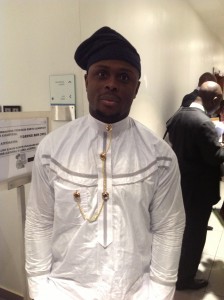
A sickle cell carrier and a UK-based Nigeria who plays professional rugby in the UK, Ade Adebisi, urged parents to be the building block of support for their children with sickle cell disorder because, according to him, most times people give up on their children when diagnosed with the disorder.
“In the UK, I was able to access the right treatment and there was no stigmatisation. This built my resilience to survive over the years and I never gave up on my dream to play professional rugby. Also eating the right diet helps a sickle cell patient live well and enjoy a normal life,” he said.
Vice-Chairman of the Foundation in the UK and a Nigerian, Mrs Anne Welsh, who is also a sickle cell patient, said most people living with sickle cell shy away and are afraid to socialise due to the level of stigmatisation in the society.
“Nigeria, with a large population of about 200 million people, needs to be in the forefront for treatment for sickle cell patients. I believe with the needed support in the health sector, medical practitioners in the country are in a better position to offer treatment because they understand the plight of people with the sickle cell disorder more than practitioners in the West, where sickle cell disorder is a rare occurrence,” she stated.
African governments asked to implement Ecological Organic Agriculture
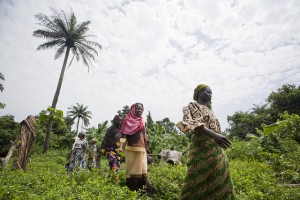 A group of 11 award-winning experts working across Africa has appealed to governments of the African Union to develop ecological organic agriculture on the continent. The laureates of the Right Livelihood Award, often referred to as the “Alternative Nobel Prize”, who met recently in Cairo in Egypt, signed a joint appeal calling on the African Union Commission and its NEPAD Planning and Coordinating Agency (NPCA), to implement their roadmap for Ecological Organic Agriculture in Africa.
A group of 11 award-winning experts working across Africa has appealed to governments of the African Union to develop ecological organic agriculture on the continent. The laureates of the Right Livelihood Award, often referred to as the “Alternative Nobel Prize”, who met recently in Cairo in Egypt, signed a joint appeal calling on the African Union Commission and its NEPAD Planning and Coordinating Agency (NPCA), to implement their roadmap for Ecological Organic Agriculture in Africa.
With regard to the latest findings of the 2014 IPCC report and to the “grave consequences for food security in Africa,” they also called on governments to implement the Maputo Declaration on Agriculture and Food Security and invest 10 per cent of national budgets into ecological organic agriculture, including research and development, job creation and rural development. The UN has declared 2014 as the International Year of Family Farming.
“We are worried that international corporations are working with the government to cultivate large areas of land for agribusiness. The threat is already at our door”, said Nomewende Joël Ouedraogo of the Fédération Naam in Burkina Faso.
Signatories to the appeal are recipients of the Right Livelihood Award working across Africa: renowned Nigerian environmentalist, Nnimmo Bassey; President of the Chadian Association for the Promotion and Defense of Human Rights, Jacqueline Moudeina; representative of the First People of the Kalahari, Jumanda Gakelebone; Executive Director of Federation Naam in Burkina Faso, Joel Ouedraogo; Dr Ibrahim Abouleish, founder of the biodynamic farm SEKEM in Egypt; Helmy Abouleish, SEKEM’s Managing Director; Hans R. Herren, agronomist and entomologist from Switzerland; Matron Sr. Tenadam Bekele Wolde, representative of Dr. Catherine Hamlin’s Fistula Hospital in Ethiopia; MOSOP President Legborsi Pyagbara from Nigeria; Guillaume Harushimana from Centre Jeunes Kamenge in Burundi; and environmental activist, René Ngongo from the DRC.
Conservationists urge action to tackle rising sea level
Conservationists have underlined the need to take practical action aimed at curbing sea level rise and save the environment.
At a recent gathering (the 2014 Fauna and Flora Fancy Dress Competitions) in Lagos to observe the World Environment Day, they underscored the importance of joining the Nigerian Conservation Foundation (NCF) and other groups’ effort on climate change enlightenment campaign aimed at sensitising Nigerians, particularly women and children, who are the most vulnerable groups to climate change and its attendant impact.
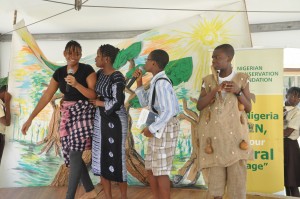
The WED 2014 has “Raise your voice, not the sea level” as its theme, which aimed at encouraging global awareness and action for the environment and curbing attitudes that will increase the sea level.
A conservationists, Desmond Majekodunmi, said that the low-lying nature of much of the coastal parts of Nigeria due to its natural geological setting constitutes a natural threat to the environment. Generally, rising to less than five metres above sea level, these coastal regions are prone to flooding even with minimal rise in sea level.
“Nigeria lies in the middle latitudes in the Gulf of Guinea. It is therefore characterised by generally high and strong wave systems which have more destructive impacts on the shoreline and constantly causing shoreline erosion. So, we must not add to the problem through our action hence, the need to create awareness on danger of rising sea level.”
Executive Director of the NCF, Alade Adeleke, stressed the need to develop strategic plans which emphasise the importance, not only of recognising children as key stakeholders in the policy-making process, but also of promoting environmental education for sustainable development as a means of enabling future leaders to find innovative solutions to adapt to and mitigate the effects of climate change and environmental degradation in their communities.
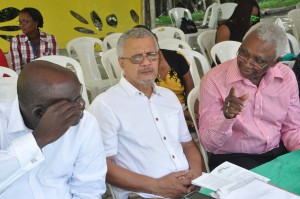
Adeleke added that, in the light of the serious challenges of rising sea level being faced by coastal cities, it is obvious that man needs to begin to evaluate his lifestyle, become more conscious of the impact of the waste being disposed, rethink his options and stop contributing to the rise in sea level.
In their presentations with different costumes to depict the theme, the children urged urged their audience to save the earth by engaging in acts that do not have negative impact the environment.
The participating students in different age categories competed in fauna and flora dress competitions to create awareness on reducing the sea level. The presentations were centered on the need to take corrective measures right from homes through proper waste disposal and clearing of drainages.
Chairman of NCF’s scientific committee, Prince Adegoke Ademiluyi, said. “I am particularly delighted with the impact this effort has been creating over the years, part of which is the replication of the idea by most environmental NGOs in Nigeria.”
He enjoined Nigerians especially the youth to help spread the gospel of conservation by joining the school conservation programme established by NCF.
While seeking further support of the corporate world on funding environmental initiatives, he added that the progress made thus far by the Foundation has been through the contributions of corporate organisations, groups and individuals. “Over the years we have worked with governments and its agencies to formulate policies which ensured that degradation and other issues that are inimical to the environment are addressed. Yes, the challenges are multifarious and we realise that we cannot do it alone. It is for this reason that I urge everyone who reaps benefits from Nigerian natural resources to join hands with us to conserve them.”


